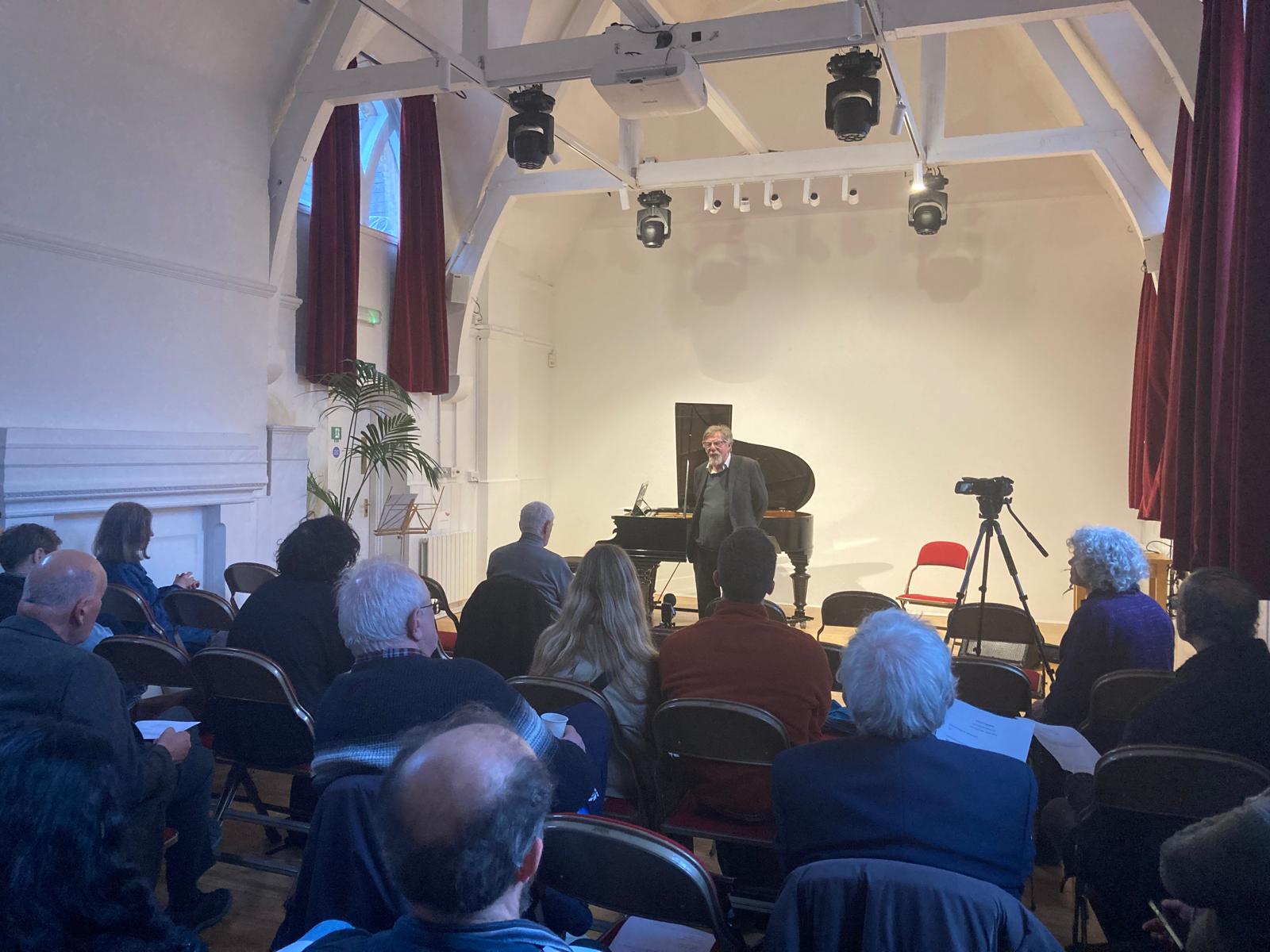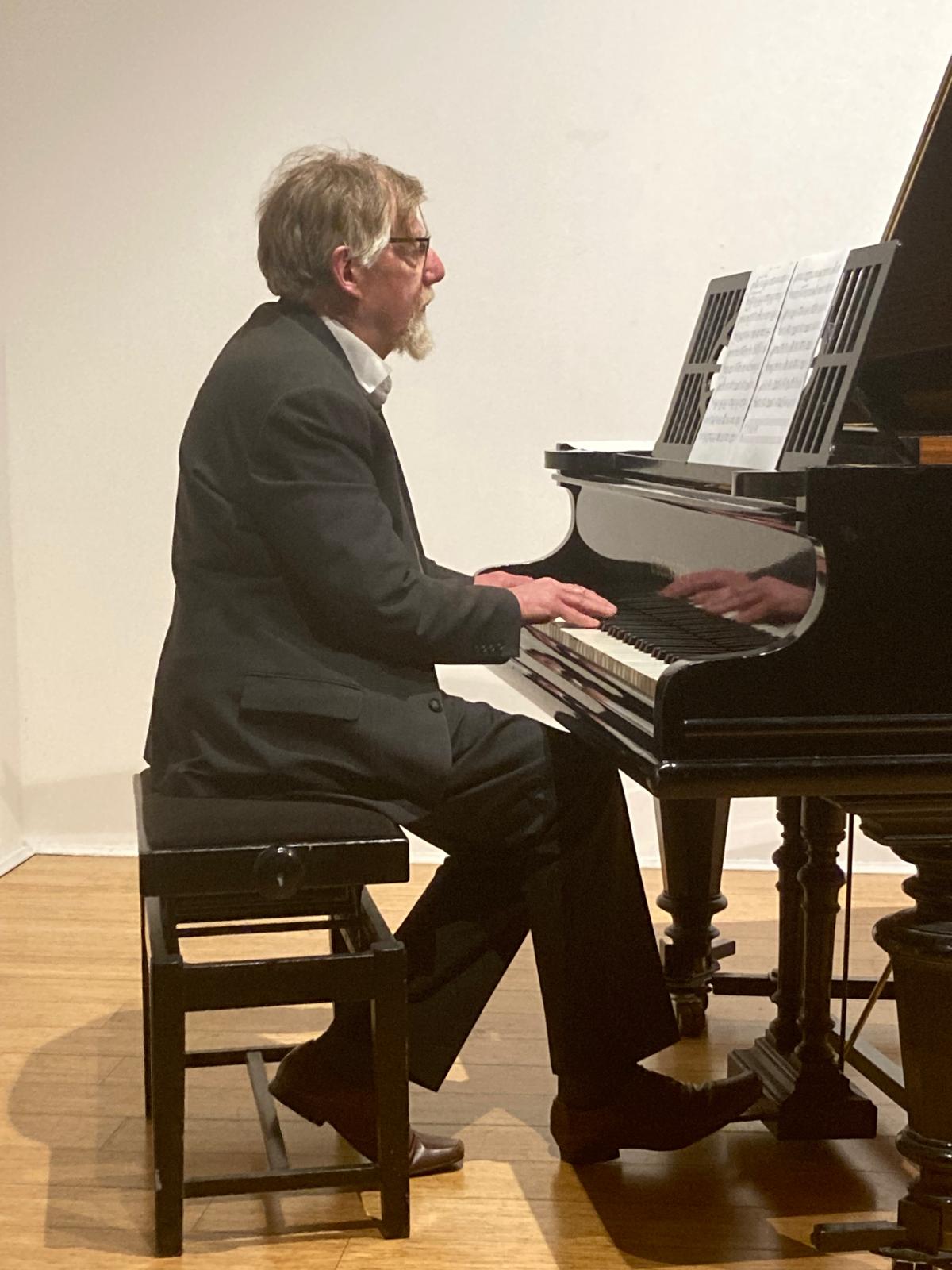
 |
||||
|---|---|---|---|---|
| Volume 54 Number 12, June 1, 2024 | ARCHIVE | HOME | JBCENTRE | SUBSCRIBE |

Michael Chant Secretary of the Cornelius Cardew Concerts
Trust
A concert with music, poetry and an introductory talk to express solidarity with the Palestinian people and their right to be was jointly organised in Central London on May 3 by the Ad-Hoc Committee "The Things That Make For Peace" and the Cornelius Cardew Concerts Trust with the title "The World Stands With Palestine".
The event was important firstly from the political point of view in responding to the necessity for discussion to be had on the question of Palestine, the Palestinian people and their right to resist, as well as the background to the conflict. This background includes the ramifications of the fact that Israel is an occupying power; international law which makes resistance to occupation lawful; and the principle that the Palestinian people have the right to self-determination and no foreign power should interfere in their internal affairs and their right to decide their state arrangements; and that the people's voice is decisive.
Secondly, the event was organised to provide the occasion for enabling concerned composers and musicians to take a stand in their music, and similarly with poets in their poetry, and to have this space in which to make their stand.

The guest speaker, in summary, spoke on the topic of Palestine, having researched the question politically and theoretically. The talk delved into the historical context of the Israeli-Palestinian conflict, highlighting the Balfour Declaration and the nefarious role of Britain as a colonial power in promoting Palestine as "a land without people, for a people without land". It was a declaration of sympathy with Zionist aspirations, never referencing the Palestinian people once, arrogating the right to make decisions on the fate of the people of the region, and subject to the machinations of Britain and also the US.
The speaker pointed out that it was Britain during its period of mandate who initially proposed the plan for a partitioned state to the UN. Israel, contrary even to the UN plan, declared itself as a state on May 14, 1948. British troops withdrew the following day. May 15 is called the Nakba, the speaker said. It is the day of the catastrophe for the Palestinian people when they were left to be slaughtered, effectively, and no one defended their right to be, and no one defended Palestine. In fact, although the UN has, even up to today, sent ruling after ruling, Israel flagrantly ignores them.
The speaker emphasised the ongoing injustice faced by Palestinians due to Israeli settlements, evictions, land confiscations, and home demolitions. The right to return for the Palestinians driven from their land is sacrosanct.
The talk concluded with a call for justice for the Palestinian people, supporting their right to resist, and condemning the British government's support for Israel. It also highlighted the importance of recognising the Palestinian people's right to self-determination.
The following cultural programme included works by five composers: Salute to the Resistance for piano, Long Live Palestine for solo violin, Reflection for piano and violin, Blood United Us andAl Shifa for violin and mandolin, and Three pieces on Palestine for piano.
The compositions were all very powerful, engaging movingly with their subject, a testament to the skill of the composers and their depth of feeling. The pieces communicated very directly with the audience.
Included in the cultural programme was a reading of the now-famous poem by Refaat Alareer "If I Must Die", a poem written before the author's death in an airstrike by the Israeli military. A young student recited one of her moving poems on the plight of the Palestinian people with great vitality and compassion. A book of her poems on Palestine is due to be published very shortly in association with the Cornelius Cardew Concerts Trust [1].
The event, in sum, was very successful and transforming, and the participants were very appreciative of the informative nature of the talk, as well as of the power of the poetry and music.
Notes
1.For further details, email:
info@cornelius-cardew-concerts-trust.org.uk